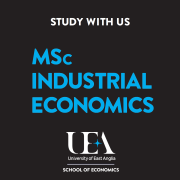(by Julie Clarke[1]) On 14 December 2016, Australia’s highest court (the High Court) determined, by majority, that Flight Centre, a travel agent, competed with airlines for the supply of airline tickets and that, as a result, its attempts to induce the airlines to lower their direct-to-public ticket sales constituted unlawful price fixing. Flight Centre markets itself as offering a ‘Lowest Airfare Guarantee’. In attempting to induce the airlines not to discount tickets sold direct to the public, it was found to be in competition with the airlines and therefore subject to a per se prohibition rather than a full effects analysis. The treatment of travel agents and other similar arrangements falls into somewhat of a grey area in Competition Law. Are the agents competing horizontally with their suppliers in selling to consumers, or are they better seen as vertically related retailers, or even as de facto employees? This is important because horizontal cartels are almost universally per se illegal, often with criminal sanctions, vertical price fixing (e.g. RPM) has a much more mixed and nuanced legal position, and employees are completely exempt (a firm is free to set prices that all its salesforce must implement). In Europe, genuine ‘agency agreements’ fall outside the scope of Article 101 TFEU, even though they may contain clauses that can produce anticompetitive effects, such as minimum pricing.[2] This blog analyses the significance of recent developments under Australian Competition Law. Read the rest of this entry »
Competition Policy blog
Competition Law and Policy blog by the ESRC Centre for Competition Policy
-
You are currently browsing the Competition Policy blog blog archives for January, 2017.



RSS Feed
Categories
- Agreements Between Buyers and Sellers (24)
- Cartels/Horizontal Agreements (63)
- Competition and Consumer Law (9)
- Dominant Firms (33)
- General (85)
- Institutions implementing competition policy (44)
- Intellectual Property (11)
- Market Inquiries (11)
- Mergers (22)
- Private Enforcement (24)
- Regulated Industries (37)
- State Aid (6)
- UK Coalition Policy (34)
- Uncategorized (1)
- Vertical Agreements (8)
Twitter Updates
Tweets by ccp_ueaLinks
Blogroll
January 2017 M T W T F S S 1 2 3 4 5 6 7 8 9 10 11 12 13 14 15 16 17 18 19 20 21 22 23 24 25 26 27 28 29 30 31 Archives
- February 2024
- November 2023
- October 2023
- June 2023
- April 2023
- December 2022
- November 2022
- August 2022
- January 2022
- July 2021
- June 2021
- April 2021
- January 2021
- October 2020
- May 2020
- April 2020
- March 2020
- April 2019
- March 2019
- August 2018
- July 2018
- May 2018
- March 2018
- February 2018
- January 2018
- September 2017
- August 2017
- June 2017
- May 2017
- March 2017
- February 2017
- January 2017
- December 2016
- September 2016
- August 2016
- July 2016
- June 2016
- May 2016
- April 2016
- March 2016
- February 2016
- January 2016
- December 2015
- October 2015
- September 2015
- August 2015
- July 2015
- June 2015
- May 2015
- March 2015
- November 2014
- October 2014
- August 2014
- July 2014
- June 2014
- March 2014
- February 2014
- November 2013
- October 2013
- September 2013
- July 2013
- June 2013
- May 2013
- April 2013
- February 2013
- January 2013
- November 2012
- October 2012
- July 2012
- June 2012
- May 2012
- April 2012
- March 2012
- February 2012
- January 2012
- December 2011
- November 2011
- October 2011
- September 2011
- July 2011
- June 2011
- May 2011
- April 2011
- March 2011
- February 2011
- January 2011
- December 2010
- November 2010
- October 2010
- September 2010
- August 2010
- July 2010
- June 2010
- May 2010
- April 2010
- March 2010
- February 2010
- January 2010
- December 2009
- November 2009
- October 2009



 Posted by Andreas Stephan
Posted by Andreas Stephan